 Thursday 17 May 2018 7:59am
Thursday 17 May 2018 7:59am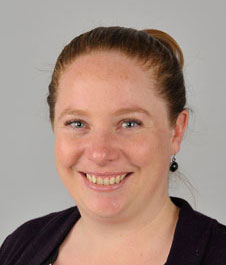
Dr Kirsty Danielson
A researcher aiming to develop an early-detection genetic-based test for bowel cancer is one of several University of Otago researchers who have been awarded almost $1.5 million in Health Research Council funding.
The council has announced today that six University of Otago researchers have secured $1,497,138 million for Emerging Research First Grants, a fund dedicated to people who are beginning their research career.
A maximum of $250,000 is available over a three-year period for health researchers with a clear development pathway who are working in a strongly supportive research environment.
Dr Kirsty Danielson, from the University of Otago, Wellington, will receive $249,984 to investigate developing biomarkers for early diagnosis of bowel cancer, also known as colorectal cancer or rectal cancer.
New Zealand has one of the highest rates of bowel cancer in the world, resulting in about 1200 deaths annually. Two key ways bowel cancer related deaths can be reduced are by earlier diagnosis of the disease and through optimising treatment plans for patients.
Dr Danielson explains that tumour cells release small ribonucleic acid (RNA) molecules that circulate in the blood plasma which have recently been identified as novel biomarkers for bowel cancer.
This study will use cutting-edge RNA sequencing technology to discover potential RNA biomarkers for early diagnosis of bowel cancer and for prediction of response to radiation therapy before surgical removal of the tumour. RNA markers identified will also be investigated in tumour cells to determine how they affect the behaviour of cancerous cells and the response to radiation treatment.
University of Otago Deputy Vice-Chancellor (Research and Enterprise) Professor Richard Blaikie is delighted to see support for the country's future research leaders.
“I am glad that this diverse range of impactful research has been funded to address important issues in human health and wellbeing,” Professor Blaikie says.
Other successful researchers are:
Dr Rachel Purcell
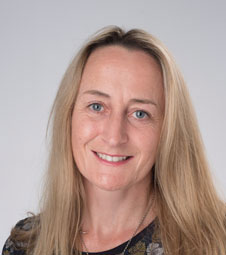
University of Otago, Christchurch
The gut microbiome in bowel cancer
$249,477
Dr Purcell and her colleagues were the first in the world to show that differences in the gut microbiome were linked to different genetic types of bowel cancer.
Her emerging researcher grant will extend this work by subtyping colorectal tumours from the Cancer Society Tissue Bank and studying their microbiomes, with the ultimate goal of developing earlier detection methods and improved treatments for colorectal cancer.
Dr Sarah Appleby

University of Otago, Christchurch
Role of myoregulin in cardiovascular disease
$249,265
Dr Appleby will study a protein called myoregulin, which is produced by what was previously thought to be “junk DNA”. Myoregulin is thought to play a key role in controlling calcium levels in muscle cells which is extremely important for normal heart functioning, and is altered in a heart attack.
Dr Appleby will measure the levels of myoregulin in patients presenting to the emergency department with chest pain to determine whether it has potential as a test to diagnose those having a heart attack.
Dr Aaron Stevens
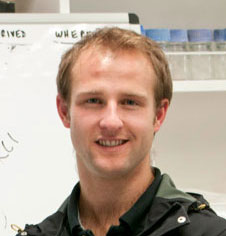
University of Otago, Christchurch
Inflammation and ageing
$249,137
Dr Stevens will study how chemicals produced by bacteria affect our bodies' immune response to pneumonia.
His study will focus specifically on the impact of chemicals associated with inflammation and infection, as well as understanding how the process differs as we age.
Dr Kate Thomas
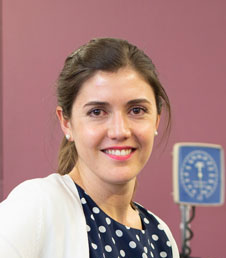
Dunedin School of Medicine
Optimisation of pre-operative cardiovascular fitness: The heat vs HIIT study
$249,615
Patients awaiting hip or knee joint replacement surgery are often limited in their ability to exercise due to pain and reduced mobility.
This randomised controlled trial aims to test and compare two novel interventions prior to surgery – heat therapy and upper-limb high-intensity interval exercise – to enhance fitness, cardiovascular health and quality of life, thereby improving surgical outcomes.
Dr Rebecca Dyson
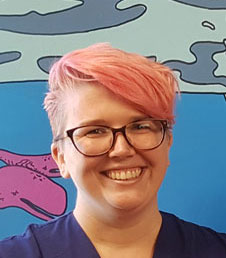
University of Otago, Wellington
Omega-3 for improvement of cardiometabolic outcomes following preterm birth
$249,660
About seven per cent of New Zealand's babies are born prematurely and as these children grow up, they face an increased risk of cardiovascular disease as adults. Omega 3 is essential for normal cardiovascular tissue development and levels of omega 3 are depleted in pre-term babies.
Dr Dyson will investigate whether application of omega-3 can help reduce cardiovascular dysfunction.
For further information, please contact:
Dr Kirsty Danielson,
University of Otago, Wellington
Tel 04 918 5049
Email Kirsty.danielson@otago.ac.nz
Liane Topham-Kindley
Senior Communications Adviser
University of Otago
Tel 03 479 9065
Mob 021 279 9065
Email liane.topham-kindley@otago.ac.nz
A list of Otago experts available for media comment is available elsewhere on this website.
Electronic addresses (including email accounts, instant messaging services, or telephone accounts) published on this page are for the sole purpose of contact with the individuals concerned, in their capacity as officers, employees or students of the University of Otago, or their respective organisation. Publication of any such electronic address is not to be taken as consent to receive unsolicited commercial electronic messages by the address holder.